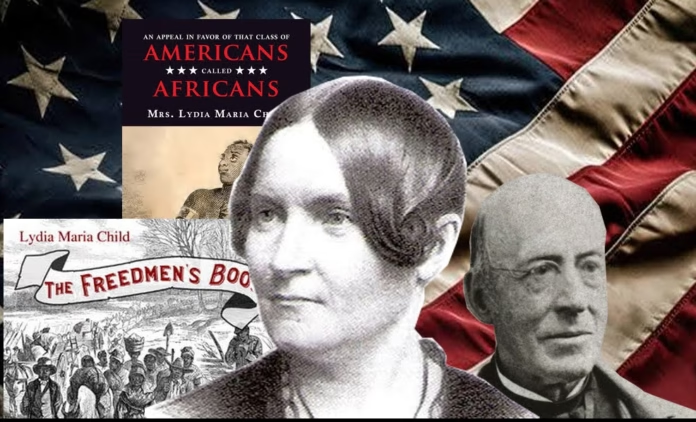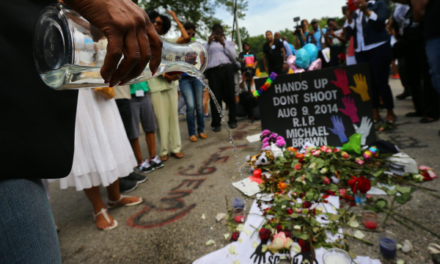As Americans muddle through this “find out” period, 45 days after we inaugurated the first criminal to the presidency, it’s surprising that more white Americans still haven’t learned that the wages of whiteness will leave us all impoverished.
In the last election, exit polls indicated that some 52% to 55% of white women voted for a convicted rapist and a political party that has fought against abortion access and the bodily autonomy of everyone but men.
For me, the past three elections show that we are living in the failed Susan B. Anthony’s vision of American freedom.
Susan B. Anthony fought for abolition and women’s suffrage but prioritized white women’s status in America’s racial hierarchy. She and Elizabeth Cady Stanton opposed the 15th Amendment, arguing that granting Black men the right to vote without including women left white women behind.
Reflecting on this moment, I think of Lydia Maria (Mariah) Child, a prominent 19th-century writer and activist. Abolitionist leader William Lloyd Garrison called her “The First Woman of the Republic.” For over 50 years, she wrote groundbreaking works, including Hobomok, which depicted a romance between an Indigenous man and a colonial woman, The Frugal Housewife, the first American cookbook, and An Appeal in Favor of That Class of Americans Called Africans, the first known use of the term “African Americans.” She also authored History of the Condition of Women and numerous essays on religious and social equality. Today, many recognize her as the editor of Incidents in the Life of a Slave Girl, the book that introduced filmmaker Natoma Lillie Keita to her work.
Unlike suffrage leaders like Stanton, who sought to appease Southern white women by excluding Black women, Child prioritized racial justice. She supported Black men’s voting rights before women’s and insisted that Black women fight alongside white women for suffrage and abolition. When Stanton and Anthony invited her to join the Women’s Suffrage Movement as an honorary member, she refused, stating that she would not divide her efforts between freeing enslaved people and securing voting rights for Black men.
In 2001, filmmaker Constance L. Jackson (now Natoma Lillie Keita) helped induct Child into the National Women’s Hall of Fame alongside Althea Gibson, Lucille Ball, Ruth Bader Ginsburg, and Rosalynn Carter. In 2007, through Permanent Productions, Jackson wrote, directed and produced a documentary on Child’s life, earning recognition from Child scholars and LA County Supervisors. This renewed attention led to Child’s permanent exhibit at the Smithsonian’s National Museum of African American History and Culture.
Child’s most controversial work is her book An Appeal in Favor of That Class of Americans Called Africans, which called for immediate action to end all forms of racial discrimination — from employment bans to segregated schools to anti-miscegenation laws. The book landed in thousands of hands, including the Reverend Martin Luther King during the Civil Rights Movement of the 1950s and 1960s.
The United States has yet to atone for the original sin of slavery, and in some key respects, it has doubled down on holding onto the ill-gotten proceeds of white supremacy. The most recent election exemplifies this, particularly in the role that white women played in preserving systems that deny fundamental rights to marginalized groups. While they are not the only example, their complicity highlights the tension between the promise of suffrage and the reality of exclusionary feminism.
More than half of white women supported Trump in the last election, which suggests that despite the advances of the suffrage movement, many white women remain aligned with white supremacy at the expense of their own gender’s rights.
The recent election also underscores a broader realignment in American politics, where the Republican Party has increasingly appealed to working-class voters across racial lines. While many political analysts view this shift as an indication that education and class matter more than race, this interpretation ignores the extent to which whiteness still functions as an economic and social currency. White blue-collar voters, for example, overwhelmingly supported Trump over Kamala Harris by a margin of 63% to 34%, reinforcing the idea that the “wages of whiteness” — the material and psychological benefits of racial privilege — continue to outweigh other factors. Even some historically marginalized groups have, in some ways, been folded into this system, further complicating efforts to build solidarity across racial and economic lines.
Lydia Maria Child’s vision of an America free from white supremacy remains unfulfilled. Until we confront this reality and commit to dismantling these systems, we will continue to see history repeat itself — at the expense of justice, equality, and true democracy.
To learn more about Lydia Child’s legacy, visit permproductions.com where you can stream Natoma Lillie Keita’s documentary, Over the River: Life of Lydia Maria Child, Abolitionist for Freedom.
Like this:
Like Loading…
Related
= 1140 ) { var adEl = document.createElement(“ins”); placeAdEl.replaceWith(adEl); adEl.setAttribute(“class”, “adsbygoogle”); adEl.setAttribute(“style”, “display:inline-block;width:468px;height:60px”); adEl.setAttribute(“data-ad-client”, “”); adEl.setAttribute(“data-ad-slot”, “”); (adsbygoogle = window.adsbygoogle || []).push({}); } });window.addEventListener(“load”, function(){ var placeAdEl = document.getElementById(“td-ad-placeholder”); if ( null !== placeAdEl && td_screen_width >= 1019 && td_screen_width = 768 && td_screen_width < 1019 ) { var adEl = document.createElement("ins"); placeAdEl.replaceWith(adEl); adEl.setAttribute("class", "adsbygoogle"); adEl.setAttribute("style", "display:inline-block;width:468px;height:60px"); adEl.setAttribute("data-ad-client", ""); adEl.setAttribute("data-ad-slot", ""); (adsbygoogle = window.adsbygoogle || []).push({}); } });window.addEventListener("load", function(){ var placeAdEl = document.getElementById("td-ad-placeholder"); if ( null !== placeAdEl && td_screen_width




